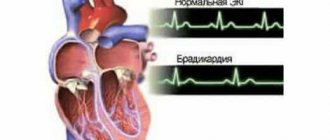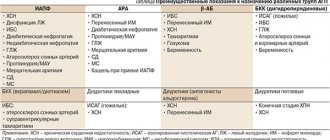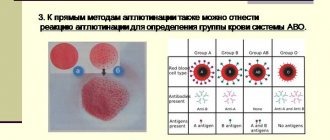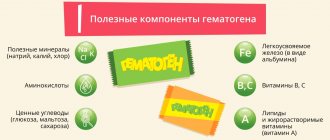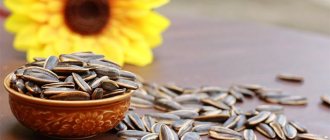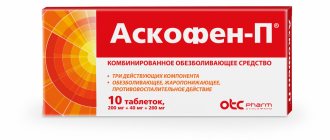Nicotinic acid is a vital vitamin, the supply of which is absolutely necessary for all people, including healthy ones. The drug is available in the form of injections and tablets. It is used for the prevention and treatment of atherosclerosis, cerebrovascular accidents, colitis, gastritis with low acidity and other dangerous pathologies.
Composition and other characteristics
Nicotinic acid (also vitamin PP or vitamin B3) is available in the form of tablets (50 mg of active ingredient each) and injections for injections (aqueous solution of 0.1% concentration). Tablets are produced in packs of 10 or 50 pieces, injections - in glass ampoules.
Vitamin B3 promotes vasodilation, lowering cholesterol and lipid levels. It is an essential, vital substance that is involved in many metabolic processes and is involved in maintaining homeostasis (constancy of the internal environment).
The drug is sold in pharmacies and is dispensed only with a prescription. Can be stored under normal conditions (room temperature, moderate humidity, away from sunlight). The shelf life is 5 years for solution and 4 years for tablets.
pharmachologic effect
Nicotinic acid is a specific antipellagric agent.
It has a pronounced short-term vasodilator effect, improves carbohydrate and nitrogen metabolism, has hypolipidemic activity, reduces the content of total cholesterol, low-density lipoproteins, triglycerides, increases the content of high-density lipoproteins, and improves microcirculation.
In the body, nicotinic acid is converted into nicotinamide, which binds to coenzymes codehydrase I and codehydrase II (NAD and NADP), which transport hydrogen, and participates in the metabolism of fats, proteins, amino acids, purines, tissue respiration, glycogenolysis, and synthetic processes.
Replenishes the deficiency of vitamin PP (vitamin B3), being a specific antipellagritic agent.
It has a vasodilating effect at the level of small vessels (including the brain), improves microcirculation, and has a weak anticoagulant effect (increases the fibrinolytic activity of the blood).
Why are nicotinic acid injections prescribed?
Nicotinic acid is indicated for the prevention of vitamin deficiency associated with insufficient intake of vitamin B3. The product is recommended for the prevention and treatment of the following diseases:
- atherosclerosis;
- cerebral vascular ischemia;
- diabetic type polyneuropathy;
- colitis, enterocolitis;
- trophic ulcers;
- long-term non-healing wounds;
- Raynaud's disease;
- facial nerve neuropathy;
- spasms of the ureters and bile ducts.
Vitamin B3 (niacin, nicotinamide, nicotinic acid)
Vitamin B3
(
niacin, nicotinamide, nicotinic acid, vitamin PP
*) is a water-soluble vitamin from the group of B vitamins.
Basic functions and intakes of niacin (vitamin B3)
According to Methodological Recommendations MP 2.3.1.2432-08 “Norms of physiological needs for energy and nutrients for various groups of the population of the Russian Federation”, approved by Rospotrebnadzor on December 18, 2008, vitamin B3 (niacin) as a coenzyme is involved in the redox reactions of energy metabolism .
Insufficient vitamin intake is accompanied by disruption of the normal condition of the skin, gastrointestinal tract and nervous system. The average consumption in different countries is 12-40 mg/day, in the Russian Federation - 13-15 mg/day. Niacin can be synthesized from tryptophan (60 mg of tryptophan produces 1 mg of niacin). The established level of requirement in different countries is 11-25 mg/day. The upper tolerable level of niacin intake is 60 mg/day. The physiological requirement for adults is 20 mg/day. The physiological need for children is from 5 to 20 mg/day. The 2015–2020 Dietary Guidelines for Americans (official publication of the US Department of Health) recommend the following daily intakes of niacin (vitamin B3):
- children under 3 years old - 6 mg
- children from 4 to 8 years old - 8 mg
- children from 9 to 13 years old - 12 mg
- girls and women aged 14 years and older - 14 mg
- boys and men aged 14 years and older - 16 mg
With insufficient intake of vitamin B3 in the body, lethargy, apathy, fatigue, dizziness, insomnia, palpitations, pale and dry skin, and reduced resistance to infections are observed. With a severe deficiency of vitamin B3, pellagra develops - a serious disease affecting the gastrointestinal tract, skin, central and peripheral nervous system.
Nicotinamide is the international nonproprietary name of the drug
In ATC, nicotinamide is included in the “A11 Vitamins” group, the “A11HA Other pure vitamins” subgroup.
Nicotinamide code is A11HA01. Pharmacological group “Vitamins and vitamin-like products”. Nicotinamide is part of the B vitamin group (vitamin B3, or PP). It is a source of niacin, as well as nicotinamide adenine dinucleotide (NAD) and nicotinamide adenine dinucleotide phosphate (NADP), which are coenzymes for many enzymes that catalyze redox reactions. Nicotinamide is involved in the metabolism of carbohydrates, normalizes intestinal motility, and is necessary for the functioning of normal intestinal microflora. Nicotinamide does not cause adverse reactions characteristic of nicotinic acid: it does not cause redness of the skin, tingling or burning sensation, hypotension, dizziness, heart rhythm disturbances, or dyspeptic symptoms. There was no connection between the use of nicotinamide and exacerbation of gastric and duodenal ulcers, or decreased glucose tolerance (Serebrova S.Yu.).
Nicotinic acid is the international nonproprietary name of the drug
In the ATC, nicotinic acid and its derivatives are included in section “C.
Drugs for the treatment of diseases of the cardiovascular system": in group "C04. Peripheral vasodilators" and have the following codes:
C04AC Nicotinic acid and its derivatives C04AC01 Nicotinic acid C04AC02 Nicotinyl alcohol (pyridylcarbinol) C04AC03 Inositol nicotinate C04AC07 Cyclonicate
to group “C10. Lipid-lowering drugs" and have the following codes:
| Nicotinamide |
| Nicotinic acid (niacin) |
C10AD Nicotinic acid and its derivatives C10AD01 Niceritrol C10AD02 Nicotinic acid C10AD03 Nicofuranose C10AD04 Aluminum nicotinate C10AD05 Nikonitic alcohol (pyridylcarbinol) C10AD06 Acipimox C10AD52 Nicotinic acid in combination with other drugs
Nicotinamide and nicotinic acid (niacin) as chemicals
Nicotinamide (eng. nicotinamide
) - amide of nicotinic acid, 3-pyridine carboxamide. White crystalline powder. Easily soluble in water and alcohol. Its structure and action are similar to nicotinic acid. Gross formula: C6H6N2O.
Nicotinic acid
or
niacin
). 3-Pyridinecarboxylic acid. White crystalline powder, odorless, slightly acidic taste. Slightly soluble in cold water (1:70), better in hot water (1:15), slightly soluble in ethanol, very slightly soluble in ether. Gross formula: C6NH5O2.
Indications for use of vitamin B3
| Patient with pellagra (vitaminosis B3) |
Taking vitamin B3 in any form is indicated:
- in the prevention and treatment of pellagra (vitaminosis B3, vitamin deficiency PP)
- slow-healing wounds and ulcers
- gastritis with low acidity
- colitis
Nicotinamide is also recommended for:
- peptic ulcer of the stomach and duodenum (not in the acute stage)
- diabetes mellitus
- atherosclerosis
Nicotinic acid is also indicated for:
- Crohn's disease
- tropical sprue
- spasm of peripheral vessels
- Hartnup's disease
- Raynaud's disease
- migraine
- cerebrovascular disorders
- angina pectoris
- hypercoagulability
- neuritis of the facial nerve
Nicotinic acid (niacin) as a means of preventing heart attack and stroke?
Extended-release niacin (niacin) in men who have had a myocardial infarction increases high-density lipoprotein (HDL) cholesterol levels and reduces lipoprotein (a) concentrations, reducing the risk of recurrent myocardial infarction. Nicotinic acid preparations can be used in patients with low HDL cholesterol values or increased lipoprotein (a) levels, but the benefit of this therapy in reducing the risk of ischemic stroke is not shown (Fonyakin A.V., Geraskina L.A.).
Sources of vitamin B3
Many foods are rich in vitamin B3: yeast, liver, nuts, egg yolk, milk, fish, chicken, meat, legumes, buckwheat, unrefined grains, green vegetables, ground nuts, flaxseed oil.
Vitamin B3 (nicotinamide or nicotinic acid) can be sold as a medicine or dietary supplement in the form of a single drug, it is also included in complex preparations, for example, Enzymtal (fungal amylase + papain + simethicone + activated carbon + nicotinamide), Cytoflavin (inosine + nicotinamide + riboflavin + succinic acid), eye drops Oftan Katahrom (adenosine + nicotinamide + cytochrome C).
Vitamin B3 is part of the vitamin and mineral complexes: Bio-Max, Complivit, Selmevit, Vitrum, Hexavit, Multi-Tabs, Vitamin and mineral complex from A to Zn (“Vitamins for adults”) and many others.
Vitamin B3 is usually included in infant formula (Kozhevnikova E.N.).
Vitamin B3 is synthesized by human intestinal bacteria, in particular Escherichia coli
.
Vitamin B3 (niacin, nicotinamide) has contraindications, side effects and application features; consultation with a specialist is necessary.
* By “vitamin B3” we mean not one substance, but several different substances that are very similar in their biochemical effects on the human body and physiology. Please note that different authors do not have 100% terminological unity. For example, in the articles of Serebrova S.Yu., Kovaleva K.A. and a number of others, the terms “vitamin B3”, “vitamin PP” and “nicotinamide” are used as synonyms. And in the article by Kivaeva I.V. and others, on the one hand, “nicotinic acid” and “vitamin PP” are considered synonyms, and on the other, “niacin” and “vitamin B3”. We do not set out to arbitrate these differences and try to avoid them as far as possible.
Nicotinamide - a means of preventing skin cancer (?)
Non-melanocytic skin cancers, such as basal cell and squamous cell carcinomas, are common cancers caused primarily by ultraviolet radiation.
Nicotinamide has been shown** to have a protective effect against damage caused by ultraviolet healing and also to reduce the incidence of new cases of precancerous photochemically active keratoses. Nitotinamide, when taken orally, is safe and effective in reducing the incidence of new cases of non-melanocytic skin cancer and photoactive keratoses in high-risk patients.** It is emphasized that the trials were conducted specifically with nicotinamide .
and not with nicotinic acid or other similar substances.***
** Andrew C. Chen AC et al. A Phase 3 Randomized Trial of Nicotinamide for Skin-Cancer Chemoprevention. N Engl J Med 2015;373:1618-26 | DOI: 10.1056/NEJMoa1506197. *** Damian DL et al. Nicotinamide for Skin Cancer Chemoprevention / The Melanoma Letter, A Publication of The Skin Cancer Foundation. Vol. 34, Spring 2016.
Nicotinic acid - food supplement
Nicotinic acid, as a food additive, has code E375 and is defined by SanPiN 2.3.2.1293-03 as a color stabilizer. In 2008, it was excluded from the list of permitted food additives in Russia. The reason is a lack of research data. Also, nicotinic acid does not have permission for use as a food additive in Ukraine. Back to section
Contraindications for use
Nicotinic acid has few contraindications. Vitamin B3 is not recommended to be taken if you have the following pathologies:
- serious liver dysfunction;
- stroke;
- increased sensitivity;
- bleeding;
- peptic ulcer at the acute stage;
- children under 2 years old;
- hyperuricemia;
- severe forms of arterial hypertension;
- gout.
Nicotinic acid in ampoules: side effects
Vitamin B3 leads to increased histamine secretion. This can lead to allergic reactions and other side effects:
- low pressure;
- redness of the skin (usually on the face and upper half of the body);
- burning, tingling;
- increased secretion of gastric juice;
- hives;
- itching;
- rush of blood to the head area.
If the course of treatment lasts several months, other negative consequences may occur:
- liver dysfunction;
- diarrhea;
- vomit;
- paresthesia;
- anorexia;
- heart rhythm disturbance;
- hyperglycemia;
- decreased glucose tolerance;
- formation of ulcers on the gastric mucosa;
- increased activity of individual enzymes.
Nicotinic acid: instructions for use
Injections are given in different ways - intravenously (slow injection), subcutaneously or intramuscularly. Dosage and method depend on the type of disease:
- To treat pellagra, 1-2 injections are given intravenously or intramuscularly for 10-15 days in a row.
- To treat ischemic stroke, intramuscular or intravenous injections are given in a dosage of 10-50 mg.
- To overcome vitamin B3 deficiency, subcutaneous injections are given.
Important!
Nicotinic acid injections are painful, which is normal. If there is no redness after the injection, this, on the contrary, is an atypical situation. A possible reason is problems with blood circulation.
Tablets are taken in different quantities:
- for the treatment of pellagra 2-4 times a day, 100 mg;
- for the treatment of atherosclerosis – 2-4 times a day in an amount of 2-3 g;
- for the treatment of dyslipidemia - 2-3 times a day from 50 mg or more.
The course of treatment lasts from 2 to 4 weeks; if necessary, in agreement with the doctor, the patient undergoes a repeat cycle.
If the specified dosages are significantly violated, itching, a strong rush of blood to the upper half of the body, and digestive disorders are possible. In such cases, maintenance therapy is necessary. In extreme situations, the patient should seek emergency care.
Pharmacokinetics
When administered parenterally, it is quickly distributed in the tissues of the body. It accumulates mainly in the liver, as well as in adipose tissue and the kidneys.
In the liver, nicotinic acid is converted into an amine, which is incorporated into nicotinamide adenine dinucleotide (NAD), which is a prosthetic group of enzymes. carrying hydrogen and carrying out redox processes.
The main metabolites are N-methyl-2-pyridone-3-carboxamide and N-methyl-2-pyridone-5-carboxamide, which do not have pharmacological activity.
It can be synthesized in the intestine by bacterial flora from tryptophan supplied with food (from 60 mg of tryptophan 1 mg of nicotinic acid is formed) with the participation of pyridoxine (vitamin B6) and riboflavin (vitamin B2). The half-life is 45 minutes.
It is excreted from the body by the kidneys in unchanged form and in the form of metabolites. Renal clearance depends on the level of nicotinic acid in the blood plasma and may decrease at high plasma concentrations.
Interaction with other drugs
Vitamin PP enhances the effect of drugs with vasoactive effects, which can lead to a decrease in blood pressure. Concomitant use with bile acid skewestrants is not recommended - they should be used at least 1 hour apart.
Niacin may cause hyperglycemia, so patients should monitor their blood sugar levels. In case of simultaneous use with Amlodipine and Atorvastatino, the risk of developing myopathy may increase. Also, vitamin PP is not recommended to be used together with vitamin C.
It is worth considering that simultaneous use with nicotinic acid reduces the effectiveness of such drugs:
- "Gliquidone";
- "Repaglinide";
- "Insulin Lizpro";
- "Phenobarbital";
- "Metformin";
- "Glipizide".
Methods
The databases MEDLINE, Embase, Cochrane Controlled Clinical Trial Register (Central), ClinicalTrials.gov and TrialResults-center (up to October 2017) were searched for studies.
The systematic review included clinical studies evaluating the use of the drug for the treatment of cardiovascular diseases. The meta-analysis included randomized clinical trials that assessed at least 1 long-term cardiovascular effect of niacin.
As primary endpoints
included cardiovascular disease, mortality from ischemic heart disease, as well as acute coronary syndrome, non-fatal and fatal stroke, revascularization and major adverse events.
special instructions
Nicotinic acid helps not only in the fight against atherosclerosis, but also strengthens the human immune system. According to some data, increased concentrations of the drug can stop the development of HIV and some bacterial infections.
The standard daily requirement for vitamin B3 is 16-28 mg for men and 14-20 mg for women. In this case, the dosage can be increased for people whose work involves mental activity and increased physical activity. A special need for nicotinic acid is observed in pregnant women, as well as during breastfeeding.
Normally, vitamin PP has a beneficial effect on the cardiovascular, nervous and digestive systems. There is also evidence that the substance prevents the formation of cancer cells. Therefore, its intake is absolutely necessary for every person, especially those with vitamin B3 deficiency.

